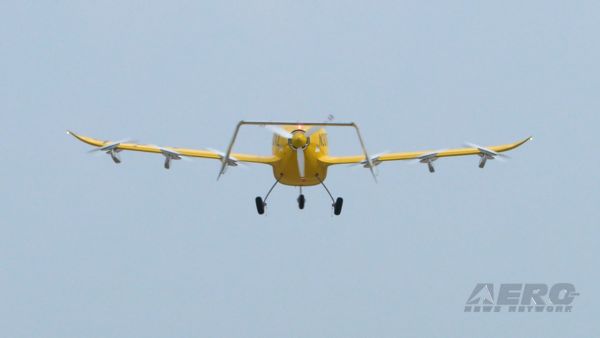Despite Open Wound Of Privatization, FAA Bill Holds Many GA
Wins
AOPA is weighing in on
the pluses and minuses they see in the wake of the Senate's passage
of the FAA Reauthorization bill, now on its way to the White House
for the president's signature. Despite the lack of long-term
protection from privatization, AOPA beleives that the bill
contains important victories for general
aviation.
Through every step of the legislative process, AOPA's staff
worked to ensure the bill included provisions that fund critical
general aviation infrastructure, help pilots deal with FAA security
issues, and protect general aviation airports threatened with
closure or access restrictions.
"Although AOPA is disappointed that the bill postpones
the privatization issue, our members can be pleased with
what our staff of Hill professionals was able to accomplish," said
AOPA President Phil Boyer.
"We worked with friends of GA on Capitol Hill to insert some
fairness into the 'pilot insecurity' rule, find money to repay GA
businesses for September 11-related losses, and guarantee funding
for improving GA airports."
Protecting Pilots
AOPA fought to ensure that the bill provides U.S. citizens with
a third party review under the "pilot insecurity" rule that enables
the Transportation Security Administration to tell the FAA to
suspend or revoke a pilot certificate if the individual is deemed
to be a security threat. Prior to AOPA's involvement, pilots could
only appeal the revocation to the TSA - the very agency that
ordered it in the first place. Now, appeal hearings will be
conducted before an administrative law judge whose decision can be
reviewed by the Transportation Security Oversight Board.
Additional security provisions recommended by AOPA force the FAA
to reevaluate the Air Defense Identification Zone (ADIZ) and report
to Congress on suggested ways improve the operational efficiency
for general aviation pilots and controllers.
GA Airports
The bill commits over
$1.3 billion to improve airport infrastructure. The funding will
help over 2,500 small airports in every state in the nation, as
some of that money is specifically earmarked for GA airports. The
bill also recognizes the difficult financial situation of many
local airport sponsors and makes it easier to qualify for grant
funding.
In addition, AOPA pushed for the provision that allows airports
to use funds for hangar development and support facilities once
general aviation airside needs are met.
Airports also receive greater protection under the newly passed
bill. AOPA helped develop the "Meigs Legacy" language that
authorizes fines of up to $10,000 per day for any airport that is
closed without providing at least 30 day written notice to the
FAA.
The bill also establishes a pilot program that will allow for
the purchase of development rights at public use airports to help
protect against encroachment pressures.
Supporting GA
The bill recognizes
that general aviation was severely damaged by the events of
September 11, 2001. While commercial airlines have received
billions of dollars in assistance to help recover, general aviation
has received nothing. With the support of AOPA, provisions were
included that now make general aviation businesses eligible for
loss reimbursements due to security costs incurred and revenue
forgone as a result of the post-September 11 security
restrictions.
"GA pilots for the most part can feel very good about the FAA
reauthorization bill," said Boyer. "It contains almost everything
on AOPA's wish list. And FAA Administrator Marion Blakey did commit
to leaving air traffic control jobs alone until at least next
October.
"But the threat of privatization, and with it the threat of user
fees, is still very real. AOPA is already girding for the battle
that is going to have to be fought again.
 Senator Pushes FAA to Accelerate Rocket Launch Licensing
Senator Pushes FAA to Accelerate Rocket Launch Licensing Classic Aero-TV: RJ Gritter - Part of Aviations Bright New Future
Classic Aero-TV: RJ Gritter - Part of Aviations Bright New Future Aero-FAQ: Dave Juwel's Aviation Marketing Stories -- ITBOA BNITBOB
Aero-FAQ: Dave Juwel's Aviation Marketing Stories -- ITBOA BNITBOB ANN's Daily Aero-Linx (10.27.24)
ANN's Daily Aero-Linx (10.27.24) ANN's Daily Aero-Term (10.27.24): Clearance Void If Not Off By (Time)
ANN's Daily Aero-Term (10.27.24): Clearance Void If Not Off By (Time)


